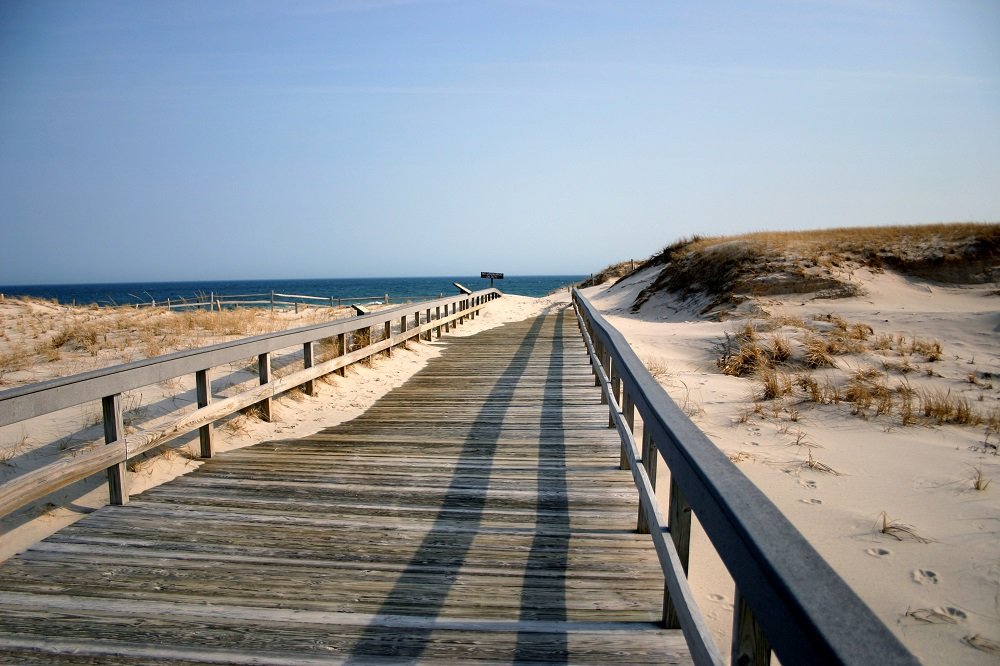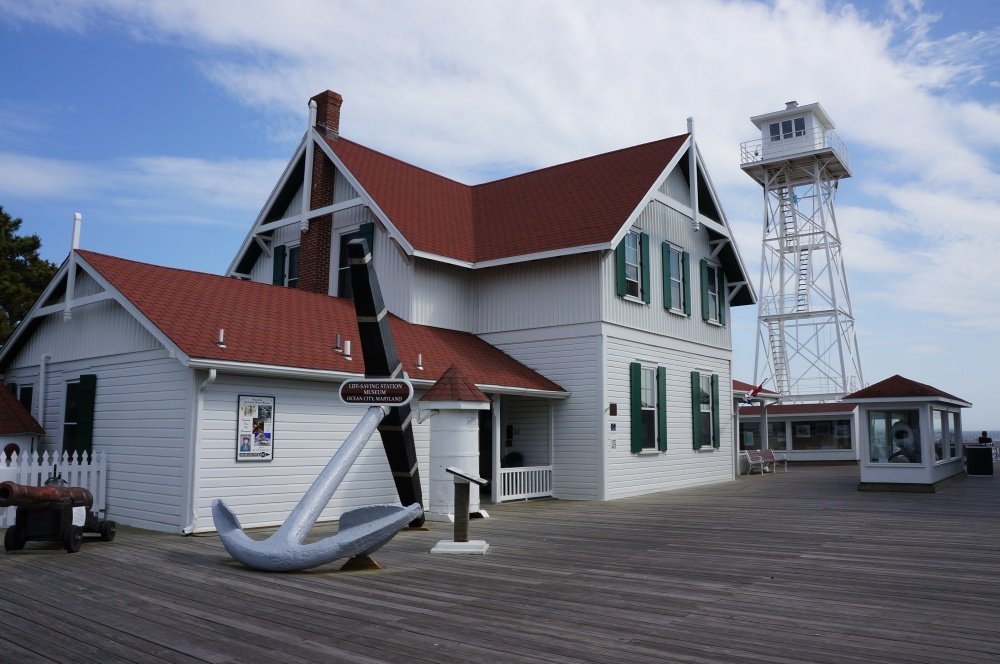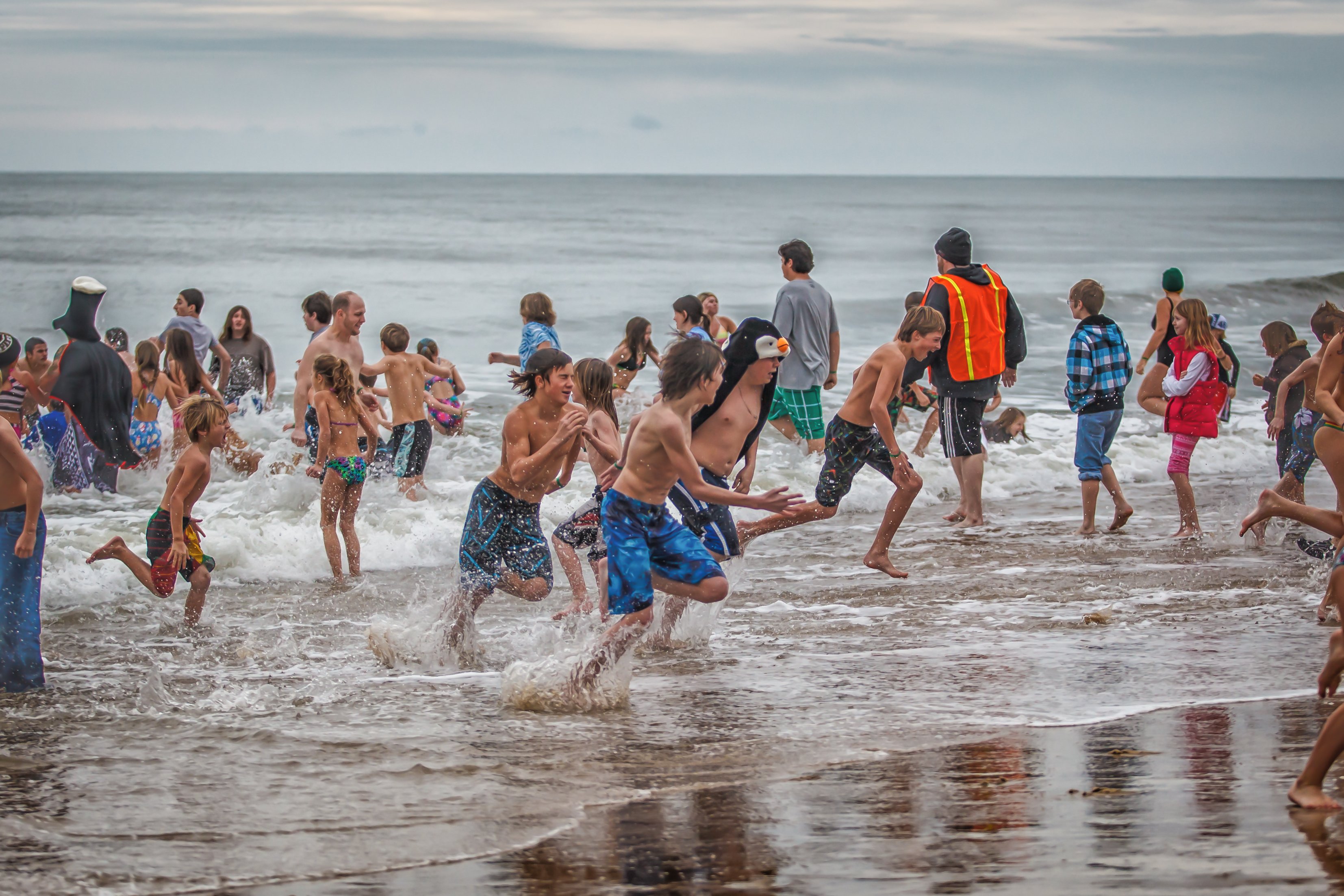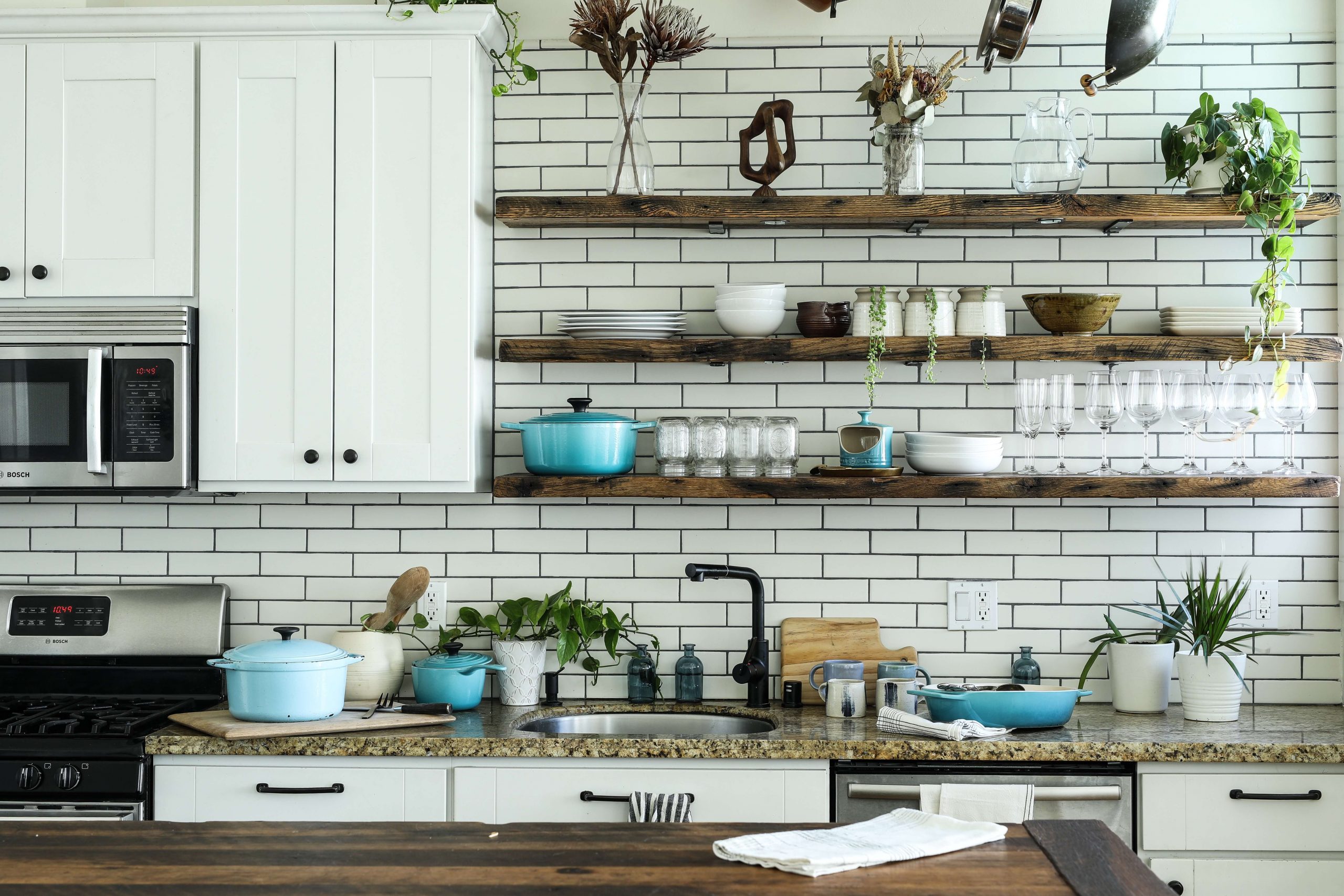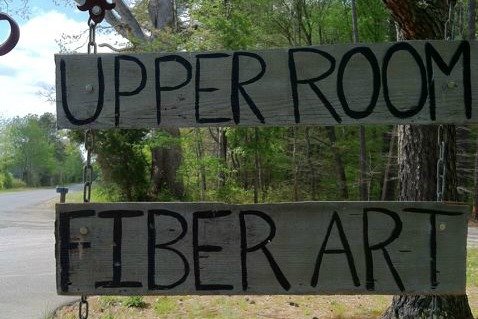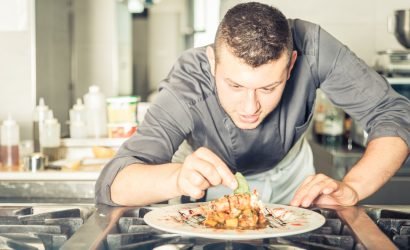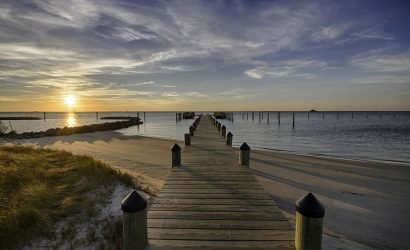A few miles from the historic center of Berlin, MD—just a slight turn off the main artery of Route 50 and into the woods—is nestled Upper Room Studio, a working farm, artist’s space, and model of practicing sustainability.
Everything at Upper Room Studio has a functioning purpose, or rather in some cases, a re-purpose. The front yard first speaks to this sensibility. Antique sinks serve as planters for landscaping; a stagecoach is part of an elaborate play area, as is a quaint playhouse, huge wooden ship, and a much-loved train. It’s the kind of set-up one might find at a public park—which is aptly where much of the equipment came from.
| The working part of the farm is through a gate, and past the building housing Upper Room Studio—the artisan’s space for weaving, spinning, knitting, bread making, and small market for goods.
Monika Lilley, who lives and works at Upper Room Studio with her family, which includes her parents and seven siblings (all but one of the Lilley children reside at the family compound), began a project and hobby that grew into what is now a business she enjoys. “I’ve been spinning for ten years. It started as a home school project, and expanded from there. I was making things for gifts, then friends wanted to learn how I made them,” explains Lilley. |
 |
| In her studio—the second floor of a re-purposed guesthouse that welcomes visitors with an all-encompassing tranquility—Lilley shows how this one-time project has grown into a fully functioning business. She now leads classes in the studio—knitting, spinning, weaving, and felting, among others—on a monthly basis, and sells the goods needed to create the products right out of the same space. The walls are lined with brightly colored yarns and raw wool (used for felting). While the animals kept on the farm produce some of what is used, Lilley sources her materials from global Fair Trade companies. The knitting needles come from a company in Vietnam; buttons are from a Russian village—each has a story to tell about the hands that made the products. |  |
| The Lilley’s try to lead a lifestyle that is as sustainable as possible—and what they do on a daily basis, by example and through their classes—is extended to the community at large through their business. In leading this lifestyle, the Lilley’s have grown to embrace what is really a world economy.
As the Lilley’s show, in order to be sustainable, and in many cases, as health-conscious as possible, the sources for the products can be far-reaching, and can’t just be from local sources. “We get our coconut oil from the Philippines, and if we didn’t, we wouldn’t be able to use it,” Lilley gave as an example. Coconut oil is know for its’ many health benefits. The Lilley’s cook with it, and use it in everything they bake. |
 |
|
So what of the idea of the carbon footprint from shipping goods all over the world? “World trade was going on long before there was a carbon footprint,” says Lilley. The driving force behind the mentality of a responsible world economy is a kind of intrinsic good in business—a company’s responsibility to its employees, its products, and the earth. “Know where you’re getting your products from,” says Lilley, and that’s important whether it’s a local or global source. The spinning wheels sold at Upper Room Studio come from a very large company, for instance, but the owner still answers the phone—this personal touch makes a difference. |
 |
Breaking Bread
| The Lilley’s sell whole grains in 50 pound bags. They come from a company in Montana that won’t use chemicals, specifically GMO, even in their non-organic varieties. These grains are ground into flour using a Wondermill and turned into a variety of baked goods.
When the Lilley’s sit down for a lunch of peanut butter and jelly sandwiches, the bread, the jelly, and the peanut butter are all homemade. They bake four loaves of bread two times per week, which supplies all of the family’s needs for bread. Anything left over is turned into croutons, for example, so there is no waste. They also make their own yogurt, ricotta, mozzarella, and butter. For anyone wishing to try his/her own hand at truly homemade, Lilley had this advice, “You have to get out of the mindset of what something looked like ‘before.’ It’s not going to look like it did when it come from the store—the consistency will be completely different.” Upper Room Studio holds bread-baking classes teaching attendees how to grind their own grain and turn them into delicious homemade treats—they also share their family recipes. While Shorebread visited, Monika’s mother Lisa delivered a tray full of Gluten free sprouted grain butternut squash bread, sprouted wheat bread, and sprouted carrot cupcakes with cream cheese icing (pictured)—which were all unbelievably delicious, along side a pitcher of fresh lemon balm and mint tea, from herbs grown on the farm. |
.jpg) |
A Working Farm
Occasionally, those visiting Upper Room Studio may hear a soft noise sounding suspiciously like the word help coming through the studio windows—not to worry, this is simply the family peacock communicating. He strolls the grounds and may show off by displaying his feathers.
| The peacock is joined by goats, sheep, turkeys, chickens, guinea hens, angora rabbits, nests of bees kept for honey, and a dog—which all (except for the bees of course), joyfully greet visitors. The goats are particularly friendly, the summer at Frontier Town (a popular campground, western town, and waterpark near Ocean City, MD) as the goats-in-residence, and are used to being fed quite regularly by vacationers. |  |
 Upper Room Studio is open to Thursday through Saturday each week. Visitors can stroll the grounds, (notice the newly built greenhouse, repurposed from an awning in Ocean City, MD), say hello to the animals, buy grains, cookbooks, yarn, or perhaps watch as Monika Lilley demonstrates the ancient art of spinning, accompanied by it’s own unique calming sound of white noise. It’s a relaxing environment that simultaneously produces an eco-friendly and socially responsible, even enviable, lifestyle. Visit and see for yourself. Upper Room Studio is open to Thursday through Saturday each week. Visitors can stroll the grounds, (notice the newly built greenhouse, repurposed from an awning in Ocean City, MD), say hello to the animals, buy grains, cookbooks, yarn, or perhaps watch as Monika Lilley demonstrates the ancient art of spinning, accompanied by it’s own unique calming sound of white noise. It’s a relaxing environment that simultaneously produces an eco-friendly and socially responsible, even enviable, lifestyle. Visit and see for yourself. |
 |
| For more information on classes offered, directions, and hours, visit Upper Room Studio, here. |  |

